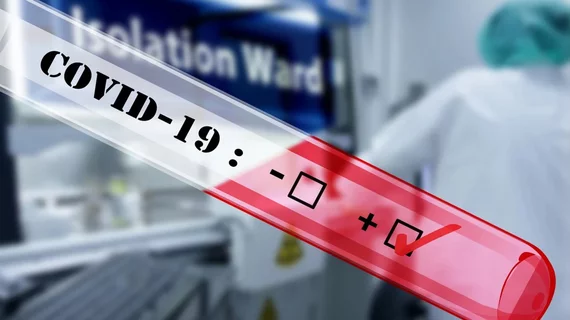What new research tells us about key blood pressure medications and COVID-19
Antihypertensive medications don’t increase a person’s risk of testing positive for COVID-19, according to new research published in the New England Journal of Medicine. There is also no evidence that they may cause a patient who does test positive to experience severe symptoms.
“Owing to the high global prevalence of hypertension (estimated to be 46% among adults in the United States), the relation between antihypertensive medications and COVID-19 outcomes is very important to public health,” wrote lead author Harmony R. Reynolds, MD, New York Grossman School of Medicine, and colleagues. “These considerations led the Heart Failure Society of America, the American College of Cardiology, and the American Heart Association to issue a joint statement calling for immediate research into this issue.”
Reynolds et al. studied data from more than 12,500 patients who were tested for COVID-19 from March 1 to April 15, 2020. All test results were all collected from the New York University Langone Health electronic health record. The authors assessed associations between COVID-19 test results and previous treatment with angiotensin-converting enzyme (ACE) inhibitors, angiotensin-receptor blockers (ARBs), beta-blockers, calcium-channel blockers and thiazide diuretics.
Overall, 46.8% of the tests were positive and 17% of patients experienced severe illness. Of the patients included in this study, 34.6% had a history of hypertension—59.1% of those patients had a positive test, and 24.6% experienced severe illness. None of the antihypertensive medications were associated with a substantial increase in a patient’s likelihood of receiving a positive test or experiencing severe illness.
The team did note that patients taking beta-blockers had “a modestly lower likelihood of a positive test for COVID-19.”
“This finding could be attributable to effects of beta-blockers on the expression or presentation at the cell surface of angiotensin-converting enzyme 2 (ACE2), the viral receptor for SARS-CoV-2, or residual confounding in the observational study design,” the authors wrote. “To be relevant in SARS-CoV-2 infection, the effect on ACE2 would need to be present on respiratory epithelium, but relevant studies in animals or humans are limited, so this proposed mechanism remains speculative. Furthermore, we did not observe a similar effect with ACE inhibitors or ARBs, which would be expected to have similar effects on ACE2.”
More information from Cardiovascular Business on the relationship between antihypertensive medications and COVID-19 is available here and here.

